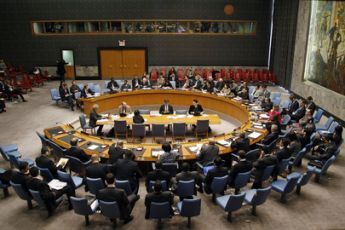UNSC advised to impose tougher arms embargo on Sudan, Chad over Darfur
March 29, 2011 (NAIROBI) – The UN Security Council (UNSC) should amplify and widen the scope of an existing arms embargo on Sudan’s western region of Darfur to include all sales or supply of military equipments to the country’s government as well as to that of its neighboring Chad, a UN-mandated panel of experts recommended in a report released this month.

The panel recommended that the embargo be clarified and expanded to include the sale or supply of military materiel to the Sudanese government, “whether the materiel is for use in Darfur or not,” as well as to the government of Chad, adding that the embargos should remain in place until both countries provide “verifiable proof” against their involvement in transferring arms to the region.
The recommendation has been made in view of the panel’s finding that arms, and especially ammunition, produced after the imposition of the embargo in 2005 had continued to leak to various belligerents responsible for insecurity in the region.
According to the panel, which maintained a continual presence in Darfur since February until mid-August 2010, most documented cases of ammunition bore markings of manufacturers from China while two documented samples of arms, attributed to use of rebel groups, were confirmed to have been exported by Israel to Chad.
China, the largest investor in Sudan’s oil sector, confirmed to the panel that it had exported ammunition to Sudan in recent years but said these exports had been conditional on “end-user certificates” in which the Government of the Sudan explicitly committed itself not to transfer the materiel to Darfur or any third party.
“The embargo should remain in place until the Government of the Sudan provides the Committee with verifiable proof that materiel documented in the hands of Government forces in Darfur was not transferred to those forces in violation of the arms embargo and/or in violation of end-user and end-use undertakings given to the State(s) from which the materiel was imported,” the report said.
The report further recommended that the UNSC “should impose an embargo on the sale or supply of military materiel to the Government of Chad. The embargo should remain in place until the latter has provided the Security Council with a satisfactory explanation of how materiel imported for its armed forces found its way into the hands of rebel groups operating in Darfur and with reasonable assurances that materiel imported or already held by the armed forces of the Government of Chad will not be diverted to belligerents in Darfur in violation of the Security Council arms embargo.”
Chad, which borders Darfur region, wrapped up a long history of mutual hostilities and backing of rebels with Sudan when the two sides signed a normalization agreement in early 2010 and established joint forces to monitor shared borders.
The panel also said that the UNSC “must clearly set out the exemptions that exist which do not require prior approval by the Committee and those which require such approval,” recalling that the Sudan claims that the embargo only pertains to materiel that is transferred to Sudan Armed Forces (SAF) for purposes of engaging armed groups.
Separately, the panel noted that Sudan had failed to take “concrete actions’ to implement the sanctions imposed against four individuals designated by the UNSC’s resolution number 1672 as “impeding the peace process in Darfur”, in reference to alleged Janjaweed leader Musa Hilal and retired army general Mohamed Al-Hassan.
The panel also said that the situation in the region remains “precarious” despite claims of improvement, citing wide-spread violations of international law and human rights as well as cases of attacks against humanitarian workers.
Darfur region has been steeped in an armed conflict since 2003 when rebel groups belonging mostly to African ethnicities took up arms against the Sudanese government, accusing it of marginalizing the region.
A harsh counterinsurgency campaign waged by Khartoum and its allied militias in the region had killed as many as 300, 000 people and displaced 2.7 million, according to UN figures.
(ST)
